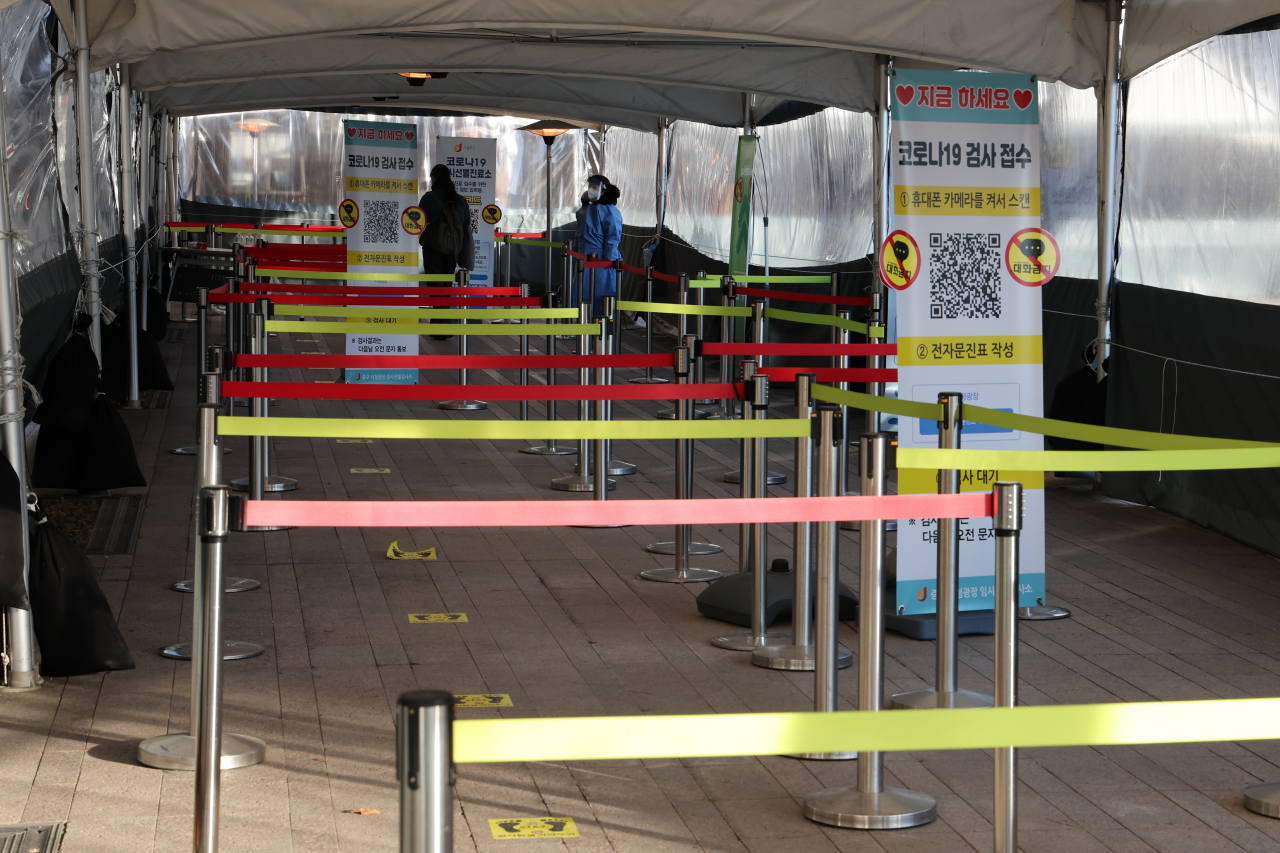 |
A coronavirus testing station in Seoul is quiet on the afternoon of Tuesday. (Yonhap) |
South Korea's daily coronavirus cases bounced back to above 4,000 for the first time in three days Wednesday, putting health authorities on high alert over a possible resurgence amid omicron concerns.
The country added 4,444 new COVID-19 infections, including 4,233 local infections, raising the total caseload to 649,669, according to the Korea Disease Control and Prevention Agency (KDCA).
Wednesday's figure was up 1,420 from a day earlier and down 963 compared with the same day last week.
It also marked the first time daily cases bounced back above 4,000 in three days, following 3,125 on Monday and 3,024 on Tuesday.
South Korea reported 57 more COVID-19 deaths, raising the death toll to 5,838, the KDCA said. The figure was slightly higher than the previous day's 51 deaths.
The number of critically ill COVID-19 patients was the lowest in two weeks at 953, according to the KDCA. Critical cases stayed below 1,000 for the second straight day Wednesday.
In early November, the government eased long-enforced antivirus restrictions as part of efforts to return to normalcy in phases under the "living with COVID-19" scheme.
Daily cases, however, soared to a record high of 7,848 on Dec. 15, prompting the government to reimpose a set of revised virus restrictions for two weeks, which were supposed to end Sunday.
Amid concerns over the spread of the omicron variant, the government extended the social distancing rules for two weeks through Jan. 16, which include a four-person cap on private gatherings across the nation and a 9 p.m. business hour curfew on cafes and restaurants.
Health authorities still remain on high alert as the country reported its first cases of deaths connected to the omicron variant Monday. Health experts predict omicron will become the dominant variant here in one or two months.
As of Wednesday, 42.7 million people, or 83.2 percent of the country's 52 million population, have been fully vaccinated, and about 19.3 million, or 37.7 percent, have received booster shots, the KDCA said.
On Monday, South Korea introduced a six-month validity period for the COVID-19 vaccine pass that is required for access to multiuse facilities. (Yonhap)








